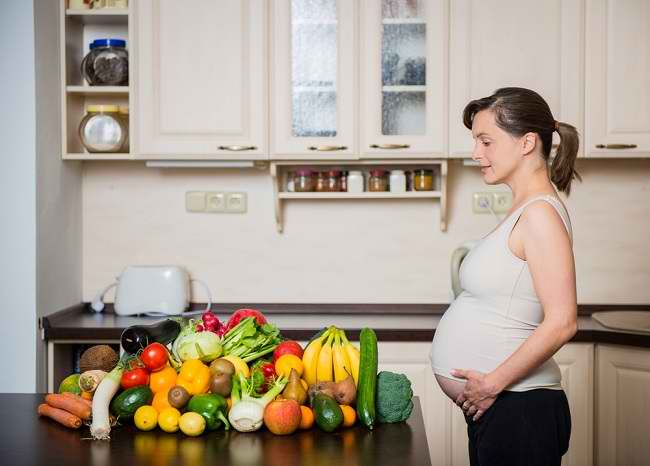The Importance of Meeting the Nutritional Needs of Pregnant Women
Ensuring that the nutritional needs of pregnant women are properly met is important to do. Besides being beneficial for the health of pregnant women, nutritional intake that is fulfilled properly is also able to support the growth and development of the fetus in the womb.
In society, there is a myth that pregnant women should eat twice as much for themselves and the unborn child. This perception is actually not quite right. and nutrition during pregnancy.

How to Meet the Nutritional Needs of Pregnant Women
Pregnant women are advised to consume more calories, but that does not mean they have to double the portion of food they consume. This is because overeating during pregnancy can increase the risk of excess weight gain, which can eventually lead to hypertension and gestational diabetes during pregnancy.
Because the effects cannot be underestimated, pregnant women are advised to focus on the nutritional content of the food consumed. Make sure that the food consumed is healthy and has balanced nutrition, and is beneficial in supporting a healthy pregnancy.
Some recommended foods, such as vegetables, fruits, grains, meat, fish, eggs, milk and pasteurized dairy products. While foods that are low in nutrients such as fast food and high-sugar foods should be limited.
Recommended Pregnancy Nutrition for Pregnant Women
To support pregnant women and support fetal growth and development in the womb, there are several important nutrients that are recommended, including:
1. Folic Acid
During pregnancy, pregnant women are advised to consume 400-600 mcg (micrograms) of folic acid per day. This is very important because enough folic acid can prevent babies with neural tube defects.
Apart from supplements recommended by doctors, pregnant women can also supplement their folic acid needs by eating a variety of foods, such as spinach, broccoli, cabbage, oranges, strawberries, whole wheat bread, and salmon.
2. Protein
Protein foods consumed by pregnant women have great benefits for supporting fetal growth and development in the womb. Various protein foods that can be consumed, including soybeans, beef, chicken, fish, eggs, or milk and processed products, such as cheese and yogurt.
3. Fibrous food
Eating fibrous food is also important because besides being high in nutrient content, consumption of fibrous food can also prevent constipation and hemorrhoids during pregnancy.
Some good types of fibrous foods consumed during pregnancy are fruits and vegetables, such as potatoes, tomatoes, broccoli, carrots, apples, and oranges.
4. Calcium foods
If pregnant women want the growth of bones and teeth of your child to run optimally, do not forget to eat calcium foods. Examples of foods containing calcium include milk, cheese, yogurt, tofu, broccoli, and almonds.
5. Fatty food
Besides making you energized, fat intake is also needed to help the developing brain and central nervous system of the fetus. Even so, choose healthy fatty foods, such as avocados, salmon, cheese, olive oil, eggs, and nuts.
Although many food choices can support the nutritional needs of pregnant women, pregnant women need to ensure that the portion consumed is not excessive. In addition, because the nutritional needs of each pregnant woman can be different, pregnant women are encouraged to consult an obstetrician regarding proper diet.
Label : Health
Comments
Post a Comment